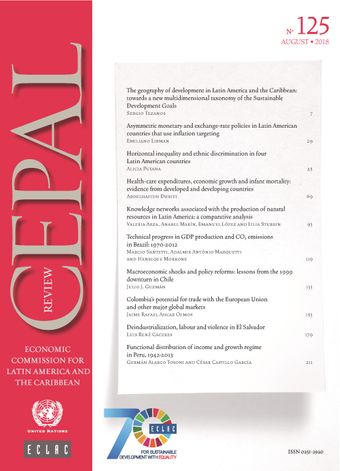-
Macroeconomic shocks and policy reforms: Lessons from the 1999 downturn in Chile
- Source: CEPAL Review, Volume 2018, Issue 125, Aug 2018, p. 133 - 151
- Spanish
-
- 04 Feb 2019
Abstract
This article analyses the Chilean government’s response to the 1999 recession that followed on from the Asian financial crisis, focusing on the macroeconomic policy reforms adopted and the institutional factors that influenced this response. The analysis is based on a review of previous research on the topic and suggests that some fiscal and monetary policies adopted during 1997-1998 exacerbated the effects of what were initially external shocks. However, fiscal discipline and the robust public institutions developed before and after the recession strengthened Chilean social protection policies. Specifically, public debt reduction in the 1990s, the Copper Revenue Stabilization Fund (FEC) set up in 1985, the structural surplus fiscal rule introduced in 2000 and the new monetary, exchange-rate and fiscal policy mix of that decade reduced the vulnerability of Chile to new shocks.





